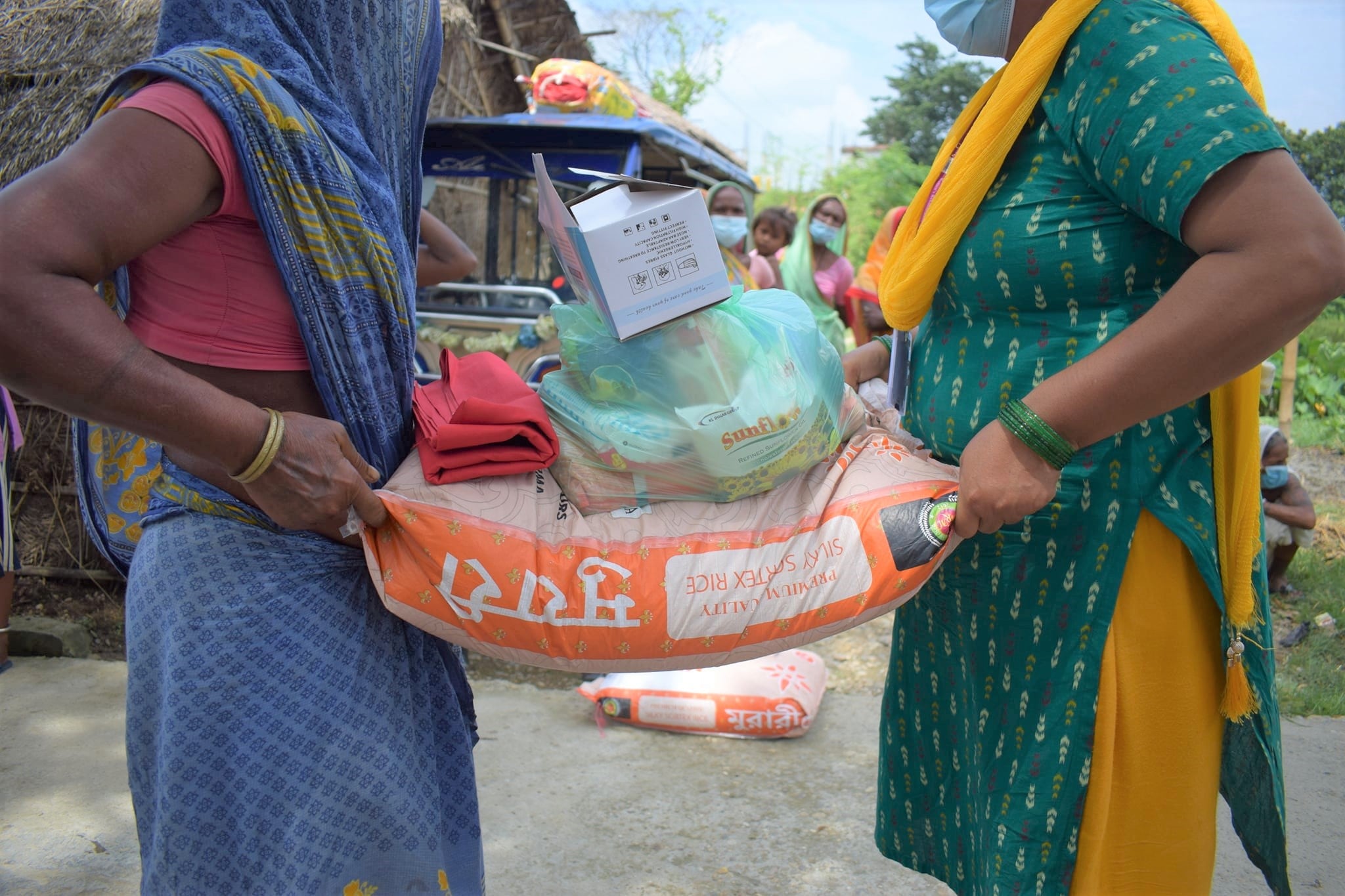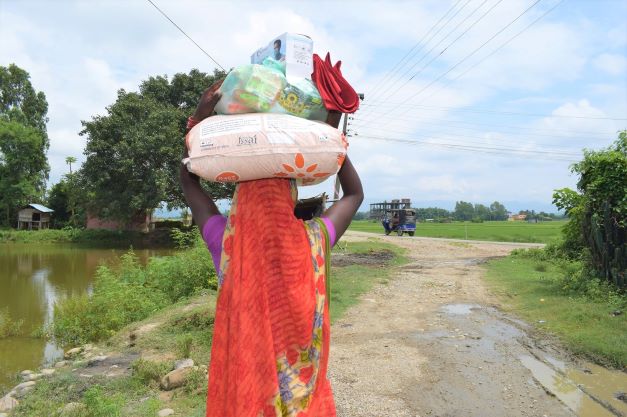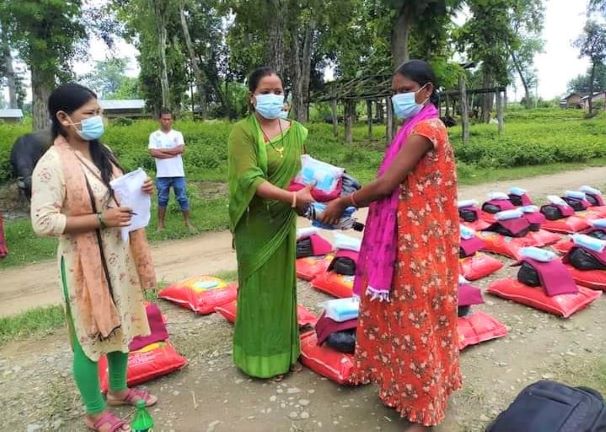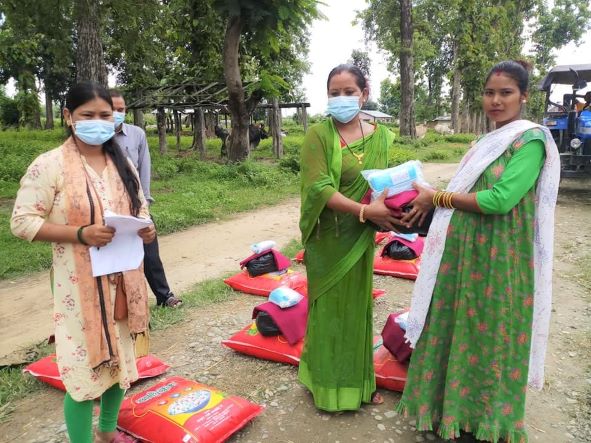
Twenty-one years old Janaki (name changed) lives in Kailai district along with her baby, husband, and in-laws. Before the pandemic, her husband, a daily laborer in India, was the only source of income in the family of five. However, when the second wave of COVID-19 pandemic hit the world, taking the lives of her neighbors and closing down the market, the countries, including Nepal and India, imposed a lockdown to curb the spread of the virus in April 2021. Due to the restriction of movement, Janaki's husband lost his job in India. As a result, he decided to return to Nepal.
Without a monthly salary to buy food, it was already difficult for Janaki and her family to survive. To top this all, Janaki was a lactating mother with a newly born baby. As Janaki did not have any money, she was deprived of nutritious food. Looking at her situation, the ward office recommended her name to WOREC for a relief package. After receiving food items, there was a sigh of relief on Janaki's face. " If I hadn't received the support, it would have been difficult to manage food as we didn't have any earnings," said Janaki.

For WOREC, standing together with a woman in need and making her feel that she and her family are not alone is very important. Our gender-sensitive response campaign aims to be with women and support them with love and compassion; hence the organization calls its initiative Sneha Campaign ('Sneha' meaning love and compassion). Since food insecurity is a serious social and public health problem exacerbated by the COVID-19 pandemic, especially in poor and marginalized communities in Nepal, WOREC has prioritized the need of women and adolescent girls through the Sneha campaign them food relief packages.

In this regard, on 5th and 6th August 2021, WOREC, in close collaboration with municipalities, distributed relief packages to support the needs of pregnant women, GBV survivors, lactating mothers, elderly women, women with disabilities, adolescent girls, and daily wage laborers in Kailali, Sunsari, Siraha and Morang districts. WOREC provided relief packages to around 100 households in each district. The relief package contained food items such as rice, beans, pulses, salt, and oil. Along with that, the package also included dignity kits consisting of sanitary cloth, detergent, soap, and a pack of the mask.
.jpg)

.jpg)